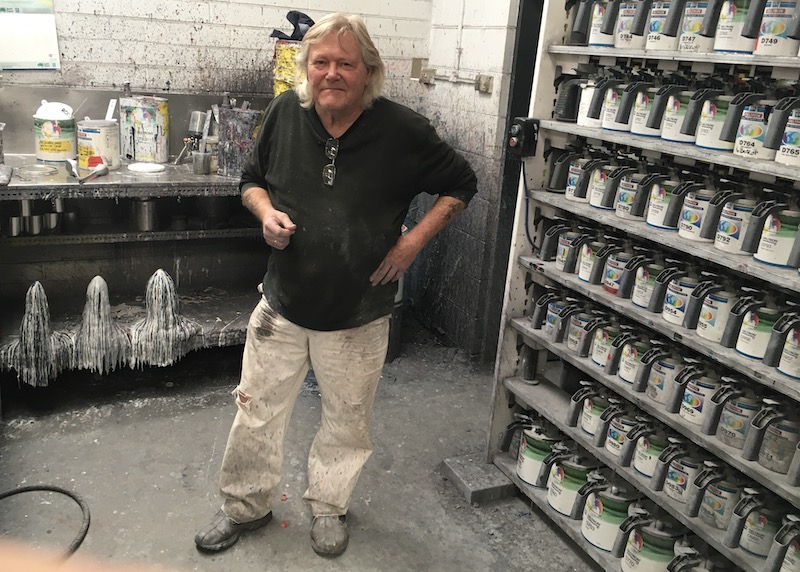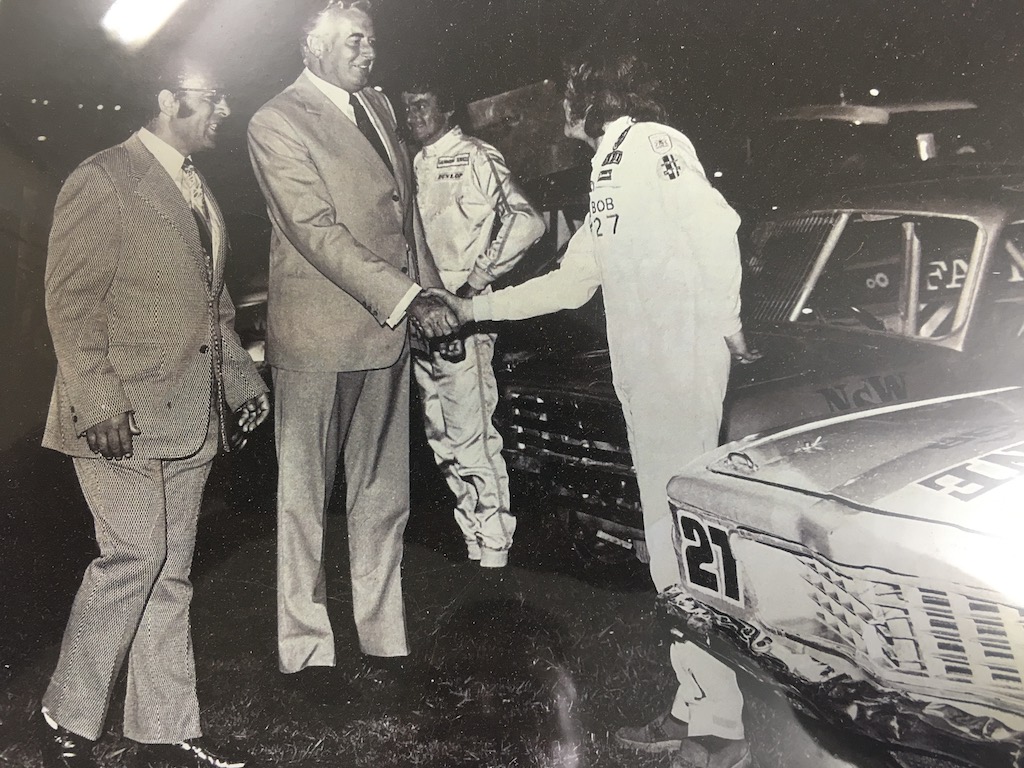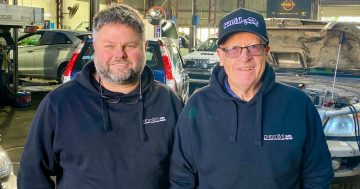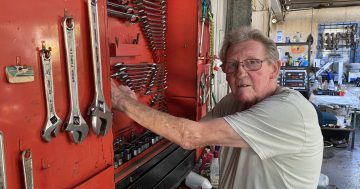
Bob Christie learned his trade in Adelaide and car yards around Goulburn before opening his own paint and panel shop, which today he runs with his daughter Monique. Photo: John Thistleton.
Having reached an extraordinary milestone of 60 years as a spray painter, Goulburn businessman Bob Christie has no plans to put away the tools and take it easy.
More than once he has left the comforts of home to travel and test himself – to be independent, learn how baked enamel worked and paintless dent repair technology.
“When I was travelling around a bit, I used to go to the police station – I did this in Adelaide and Maroubra – and ask where the boarding houses were,” he said. “They would tell you what places had a reasonable reputation. I did that because I wanted to get accommodation that was near to where I worked.”
He still recounts finding back editions of the Goulburn Evening Post at the State Library in Adelaide, which he read through whenever he was feeling homesick.
Growing up, he had been spoiled at home. Although his father Maurie died in 1980 when he was only 65, Bob feels he is still around, such were their shared experiences.
“He was my best mate,” Bob said.
Maurie had left home when he was 13, worked in the bush, became a shearer and met his wife Gwen Caton when he and his mates arrived late one night at the Laggan Hotel. Gwen was the publican’s daughter. She and Maurie married in 1937 and their daughter Barbara was born in 1939.
He served in Papua New Guinea during World War II and never spoke of the conflict. All his son knows is that he was happy to come home and even happier when Bob arrived in 1946.
Finishing high school early, Bob began spay painting while working for Russell Adam, the unconventional founder of a national signage company.
“I became a bit obsessed with the spraying, so I bought a little compressor for 28 pounds,” he said. “We lived in Deccan Street and I used to do little jobs for my mates.”
He taught himself colour-matching while spray painting for car dealer Neville Burrows and had two stints working for Reg Moore at Geissler Motors.

At Liverpool Speedway, Bob Christie shakes hands with Prime Minister Gough Whitlam. Left is Frank Oliveri, who ran the speedway, and the other driver is Peter Graham, captain of the Australian team that competed against an American line-up. Photo: Bob Christie collection.
He once rented a small shed from Lindsay Taylor in Clinton Street, opposite Bruce Holloway’s plumbing, sitting car bodies on milk crates and spray-painting them for panelbeating shops.
“My shed was a wool store, it belonged to John Moses and Co,” he said. “For years I pulled bits of wool out of my wet paintwork.”
One of his neighbours, Mike Collins, who had a backyard full of car wrecks, ran Goulburn Panel Beaters.
“We had a connection through speedway,” Bob said. “He was a great neighbour, we shared the gate, that was our entry.”
While building his business, Bob also earned a profile in speedway racing.
“It was like, on the weekend you were in show business and on Monday morning you were rubbing down mudguards,” he said.
He moved to his current site in Maud Street in the 1980s, buying it on vendor finance for $145,000. The previous occupant, Lilac Laundry, cleaned linen for hotels, motels and a nursing home in Verner Street.
Collisions with kangaroos continue to bring most people to the repairer, but exceptions include the owner of a dark-blue Subaru.
“It turned out she had a pet goat who could see itself in the reflection in the dark blue and thought it was competition and punched the inside out all the way down the side of the car,” Bob said.
Reflecting on his own industry, the most noticeable feature is the lack of people going into trades.
“We have more work than workers,” Bob said. “I’m enthusiastic but I’m not young, I haven’t had a kid walk through my door wanting work experience from high school for five years. And most of my blokes [employees] came from work experience.”
He has seen many chief executives come and go and leave in their wake the corporate wreckage from not nurturing and guiding young people into essential trades. Instead, too many academics are around, unaware of the problem until their plumbing needs repairing.
“But where’s the plumber, the electrician, the smash repairer and the mechanic?” Bob asks rhetorically.









